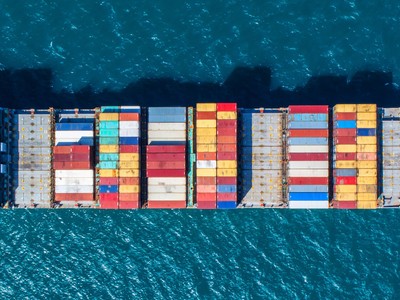In a world where traditional terrorist threats tended to be group based and focused on destruction to property, we are now witnessing “cultish terrorism” and extremists focusing their efforts on mass casualty events and disruption to societies. Their aim now appears to be centred on undermining our Western democratic values and lifestyles. We are living in a virtual world, where information (good and bad) passes at the speed of photons. We should heed the advice of Dr Henry Kissinger who believes that we are now living in the most tumultuous period since the Ottoman era and we are only on “Scene One of Act One”.
These threat actors, be they traditional terrorists, radical extremists, militias, hybrid fighters, narco or cyber criminals, are using all means to harm and defeat us: full spectrum asymmetric attacks. One issue is that we are still dealing with them symmetrically, with forces and institutions configured in traditional hierarchical structures, conventionally equipped and led by some who still think and operate in a classical, Western way. We now need to think, operate, lead and deal with these multifarious threats quite differently.
The police and MI5 are arresting one person a day for terrorism related offences; a 35% increase over 2016.
The current threat posed by Islamist extremism is global, persistent, evolving and ideological. We are now facing a step change, rather than a spike, in terrorist attacks in the UK and Europe. The statistics speak for themselves. The police and MI5 are dealing with over 600 investigations at any one time, involving 3,000 subjects of “specific” interest. A further 20,000 people are “of interest” to the security services. 23,000 people who want to do us harm, promote violent extremism on-line, recruit, fundraise and share recipes for homemade bombs. The police and MI5 are arresting one person a day for terrorism related offences; a 35% increase over 2016. The growth of extreme right-wing terrorism is exacerbating this problem.
We are seeing a volatility of attack methodologies and threat actors that are stretching our security services and counter terrorism (CT) architecture to the limit. These range from: young to old (15-55) perpetrators; international to local, low tech to highly sophisticated, as in the Manchester Arena attack; networked attacks to lone actors; the exploitation of surface and sub-surface media, in particular the use of encrypted messaging; the increasing involvement of women and children in attack planning and potential attacks; the use of suicide and non-suicide bombers and the increased use of improvised explosive devices (IEDs).
This volatility is combined with increasing velocity. 2017 saw a speed, intensity and frequency of attacks and interdicted plots that we have not seen before in the UK; although Europe has experienced this for the last three to four years. There is a speed to these attacks that is worrying; the London Bridge attack lasted less than eight minutes and Khalid Masood drove his hired vehicle across Westminster Bridge causing devastation in under three minutes. The use of technology increases exponentially; commercially available Acetone Peroxide (TATP) in the homemade explosive, demonstrates increasing sophistication and expertise. There is also an increasing pace in radicalisation, through on-line magazines such as Dabiq and Rumiyah, with one ‘convert’ being fully radicalised in under a month.
Against this volatility and velocity, we are seeing increasing number of vulnerabilities. We are seeing the deliberate exploitation and undermining of our democratic values and principles with the sole purpose of further destabilising families, communities and societies making them more vulnerable to Daesh’s interpretation of Islam. We are witnessing the exploitation of young and vulnerable people, who live on the fringes of society, through the dazzling appeal of the so-called caliphate and the lure of a ‘better’, albeit increasingly online world. Daesh and other extremists know all too well that we will adhere to the Rule of Law and do our utmost to protect civil liberties and other freedoms.
Lastly, there is a vacuum that provides advantage to those who wish us harm. There is a lack of political consensus on the long term solution to radicalisation and it is arguable that we still simply do not know enough about the nature of Islamist extremism. We are witnessing an increasing gap between the significant and mutating group of threat actors and threat methodologies and our collective response ~ be it in our CT strategies, businesses or societies. This is not just a national issue but a global problem. Moreover, there is a lack of public and political debate on some of the sensitive issues ~ be it integration, radicalisation, immigration and the balance between data protection and personal security. There is also a widening resource gap between our collective security, intelligence and defence budgets and the growing number of national and international threat actors.
This is quite a gloomy outlook but there is a step change in the government’s response to this rapidly evolving, complex and chaotic threat landscape. The police and Home Office are now actively engaging with the business community and encouraging it to gear up and take on more responsibility for their own protective security. This ‘partnership approach’ includes greater sharing of information and lessons learned about terrorist incidents and threats; and more advice on protecting crowded places and the training of private security professionals. HMG is allocating resource towards innovative technology companies, including shared research and development. Even with the all-consuming Brexit debate and resultant constraints on parliamentary time, this Spring will see a revised Counter Terrorism Strategy (CONTEST) and reviews of the counter extremism and countering violent extremism policies and programmes. There is a real appetite in the private sector to engage and gear up to these new threats. At the end of the day, this is about looking after our people, duty of care, social responsibility, protecting the bottom line and improving our resilience against terrorist attacks.
We need to eat more soup with knives and try and synchronise this asymmetry.
Notwithstanding this, and in the light of the global, persistent, evolving and ideological nature of the threat I strongly believe there is a requirement for all sectors of society, to think differently, act differently and respond differently to these threats facing us today and for the foreseeable future. It is not going to get better for some time and we can expect more extremism attacks in the UK. We all have a duty, and I would suggest public responsibility, towards our employees, communities, families and the next generation to better understand the context of today’s uncertain, unstable and asymmetric world. As T.E. Lawrence described it, while fighting the Ottomans, asymmetric operations is “like eating soup with a knife.” We need to eat more soup with knives and try and “synchronise this asymmetry” ~ using all ways and means to defeat those who are intent on harming us and undermining our way of life.
Ed Butler CBE DSO.
Ed has extensive experience spanning some 35 years of counter-terrorism, intelligence, security, international relations and risk management ~ much of which was gained during 24 years on frontline service with the British Army. He was privileged to command 22 SAS over 9/11 and was Commander of British Forces Afghanistan in 2006, leading the break-in battle into Helmand Province, before retiring as a Brigadier in 2008. Ed is currently Head of Risk Analysis at Pool Re, the government backed terrorism reinsurance scheme as well as a Senior Advisor at S-RM, a Business Intelligence and Risk Consulting company. He is also sits on the Advisory Board of EDF Energy Generation, the operating company for UK’s nuclear industry. He was formerly Executive Chairman of Salamanca Risk Management and CEO and founder director of a strategic intelligence consultancy. He has an Honours degree in Politics and International Relations from Exeter University and an MA in Military Technology and Defence Studies from Cranfield University. He is an Assistant to the Goldsmiths’ Company and has been a Trustee of the Airey Neave Trust since 2002.
The Airey Neave Trust
The Airey Neave Trust with its principle, Freedom under the Law, supports the study of Counter-Terrorism (CT) with publications and seminars that have contemporary relevance. It was established in memory of the contributions that Airey Neave made to his country; Airey was a barrister, Army officer (the first to escape from Colditz) and British MP, who was assassinated by terrorists in 1979.
The Trust identifies and supports selective publications and seminars on current and potential CT issues that explore areas beyond those covered by existing academia, government organisations or other charities. Recent examples include the books - Walking Away from Terrorism: Accounts of Disengagement from Radical and Extremist Movements – Dr John Horgan; Hunting Season – James Harkin; Al-Britannia, My Country – James Fergusson. Consultations include: St. George’s House on Countering Violent Extremism Post Arab Spring and the National Security Fellowship Scheme on Countering IEDs and Detecting Home-made Explosives.
In 2017, the Trust launched the annual Airey Neave Memorial Book Prize, sponsored by Pool Re, awarded to a non-fiction book which has made the most significant, original, relevant, and practically valuable contribution to the understanding of terrorism. The 2017 winner, announced at a reception at RUSI and presented by Lord Evans of Weardale KCB DL (former Director MI5), was the Anatomy of Terror by Ali Soufan.
For any more information on the Airey Neave Trust, or to make a donation, please contact The Administrator at aireyneavetrust@gmail.com or visit www.aireyneavetrust.org.uk.


